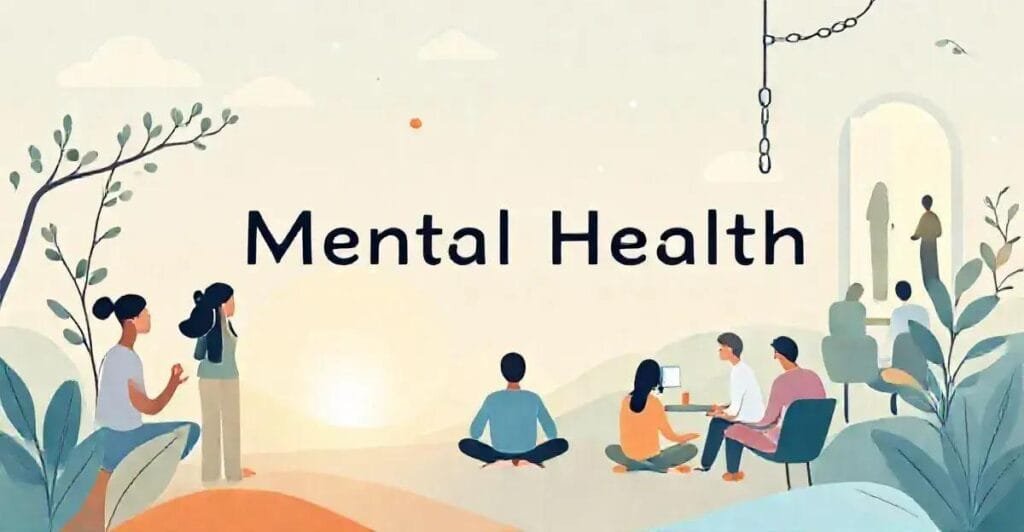Are you tired of feeling like you’re drowning in a sea of anxiety and stress? Do you struggle to keep up with the demands of modern life? You’re not alone. Stress has become a ubiquitous part of our daily lives, affecting millions of people worldwide.
But the good news is that there are many effective stress management techniques that can help you regain control and find peace. In this post, we’ll explore the science behind stress management, practical techniques for reducing stress, and how to incorporate them into your daily routine.
Understanding Stress and Its Impact on Our Lives
Stress is a natural response to various stimuli, and it plays a vital role in our survival. However, when stress becomes chronic and overwhelming, it can have severe negative effects on our mental and physical well-being.
Understanding the impact of stress on our lives is crucial to developing effective stress management strategies. Stress can manifest in various ways, including anxiety, fatigue, and mood swings. It can also lead to chronic diseases, such as hypertension, diabetes, and cardiovascular disease.
Recognizing the warning signs of stress, including a racing heart, trembling hands, and difficulty concentrating, is essential to taking proactive steps towards reducing its negative effects.
By understanding the causes and consequences of stress, we can begin to develop coping mechanisms and implement stress-reducing techniques into our daily routines.
The Science Behind Stress Management

The human brain is wired to respond to stress, triggering a complex physiological response that prepares us to either fight, flee, or freeze.
This response is mediated by the hypothalamic-pituitary-adrenal (HPA) axis, which releases stress hormones like cortisol and adrenaline.
The HPA axis plays a crucial role in our ability to cope with acute stress, but chronic activation can lead to negative consequences.
Research has shown that stress can affect every aspect of our lives, from our mental and emotional well-being to our physical health and relationships.
Understanding the science behind stress management is essential to developing effective strategies for reducing stress and promoting overall health and well-being.
Practical Techniques for Stress Relief
Deep breathing exercises, progressive muscle relaxation, and visualization techniques are just a few examples of practical methods for reducing stress. These techniques can be done anywhere, at any time, and are highly effective in reducing feelings of anxiety and tension.
Another effective technique is mindfulness meditation, which involves focusing on the present moment and letting go of worries about the past or future. The key to successful stress relief is to find a technique that works for you and to practice it consistently.
Regular exercise, such as yoga or a brisk walk, can also help to reduce stress levels by releasing endorphins, also known as ‘feel-good’ hormones. Additionally, getting enough sleep, eating a healthy diet, and engaging in activities you enjoy can all help to reduce stress and promote overall well-being.
Exercise and Physical Activity for Stress Reduction

Regular exercise is a powerful stress-reducing tool that can be incorporated into daily life.
Aerobic exercises, such as running, cycling, or swimming, can help reduce stress by releasing endorphins, which are natural mood-boosters.
Yoga and Pilates can also help reduce stress by promoting relaxation and reducing muscle tension.
Additionally, physical activity can help improve sleep quality, which is often disrupted by stress.
It’s recommended to aim for at least 30 minutes of moderate-intensity exercise per day to reap the stress-reducing benefits.
Exercise can also be a great way to clear the mind and take a break from the demands of daily life.
By incorporating physical activity into your daily routine, you can reduce stress levels, improve overall health, and increase feelings of well-being.
Mindfulness and Meditation for Stress Management
Mindfulness and meditation are powerful tools for reducing stress and improving overall well-being.
Mindfulness involves being present in the moment and paying attention to your thoughts, feelings, and physical sensations without judgment.
Meditation is a specific type of mindfulness that involves focusing on the breath or a mantra to quiet the mind.
Regular mindfulness and meditation practice can reduce symptoms of anxiety and depression, improve sleep quality, and increase feelings of calm and clarity.
There are many resources available to help you get started with mindfulness and meditation, including guided recordings and mobile apps.
By incorporating mindfulness and meditation into your daily routine, you can develop a greater sense of inner peace and resilience in the face of stress and adversity.
Coping with Stress in the Digital Age

The digital age has brought numerous benefits to our lives, including increased connectivity and access to information.
However, it has also introduced new sources of stress, such as social media and email overload.
To cope with stress in the digital age, it’s essential to establish healthy boundaries and prioritize self-care.
This can include setting limits on screen time, taking regular breaks, and engaging in activities that bring joy and relaxation.
Additionally, staying organized and prioritizing tasks can help reduce feelings of overwhelm and anxiety.
By developing strategies for managing digital stress, you can improve your overall well-being and maintain a healthy work-life balance.
Frequently Asked Questions about Stress Management
What are some effective stress relief techniques?
There are many effective stress relief techniques, including deep breathing, progressive muscle relaxation, and mindfulness meditation. Regular exercise, such as yoga or a brisk walk, can also help reduce stress levels.
How can I manage stress in the digital age?
Staying organized, prioritizing tasks, and setting healthy boundaries around screen time are all important ways to manage stress in the digital age.
What are some signs of chronic stress?
Signs of chronic stress include anxiety, fatigue, mood swings, and difficulty sleeping. If left unchecked, chronic stress can lead to serious health problems.
Can stress relief techniques be learned?
Yes, stress relief techniques can be learned and practiced. With consistent effort, you can develop healthy habits and strategies to manage stress.
How can I reduce stress in my daily life?
Reducing stress in daily life requires a combination of self-care, prioritization, and healthy habits. By taking care of your physical and emotional needs, you can reduce stress and improve overall well-being.
Is stress a normal part of life?
Yes, stress is a normal part of life. However, chronic stress can have serious negative effects on physical and mental health. Developing healthy strategies for managing stress is essential for maintaining overall well-being.


